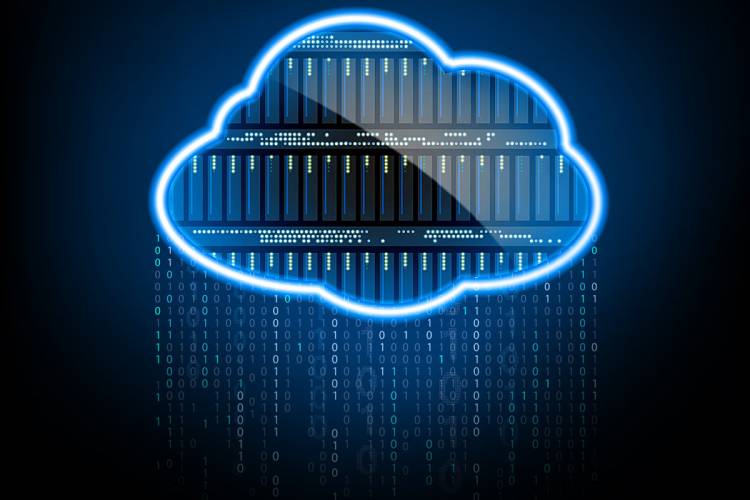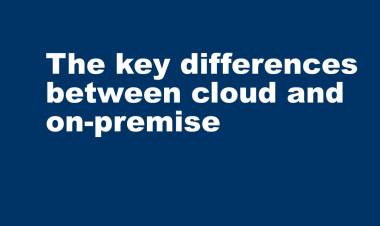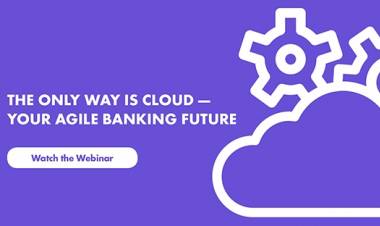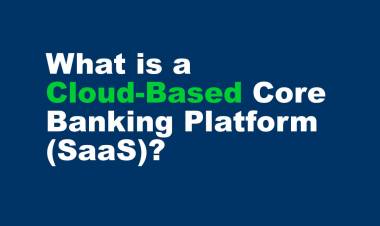Cloud computing: THE "PROS" AND "CONS" OF THE CLOUD.

Cloud computing: THE "PROS" AND "CONS" OF THE CLOUD.
Risks:
We must recognize that not everything is rosy in the big cloud, as there will always be factors that will trip the reliability of the services offered by it. On the one hand, the growth of this notion has strengthened the sales of today's so-called netbooks, which have been sacrificed in their physical performance such as the absence of an optical drive and even, in most cases, little hard disk as the central idea is that the user is not filled with peripherals and only access their information through the network. The concept is great, but the failures of the servers on different occasions have put the warning signal on many users who still distrust a service like this. This is the case of the great father, Google, with whom on several occasions both Gmail and its flagship search engine have suffered failures that have left their users out of service for a few hours; enough for millions of customers to claim, stress and be left with that tingling sensation that there is something that is not working at all well.
Let's give the following example: What would happen if a company or institution that has decided to leave all its vital information in a cloud and just the day they wish to access it is clear? A metaphor that undoubtedly reflects the concern, and certainly the precaution that both people and companies must take to keep the information safe. Eventually it is thought that a company that offers a service of this nature will have a true army of servers deployed throughout the world to give a good support but the truth is that these can also fail because the processes do not yet mature at all, exposing Internet users to the danger of losing valuable information based on free services.
Another equally important risk in this area is information leakage, an increasingly common problem given the range and variety of data that providers in the cloud store, which implies that in any information leakage significant impact would occur. Using the services in the cloud represents an unprecedented trust in the provider, it is inevitable that the authors of malicious programs and cyber hackers point to the cloud computing services with the desire to find data that can steal, sell or manipulate Since cloud computing is becoming an essential business tool, as email has been consolidated today, patterns and regularizations should be introduced to systematize the work of suppliers and mitigate any type of risk.
It is believed that once cloud computing reaches its critical mass, there are likely to be few highly specialized hackers who know how to penetrate cloud systems to steal or manipulate information, and those who achieve it can earn a lot of money. There will also be scammers with no interest in technology but they will use current tricks, such as 419 e-mails,
to get the money from their victims. And obviously the cyber criminals who will create and use Trojans, worms and other malicious programs, as well as security companies that protect their clients against these threats will be located. In general, the state of affairs will not undergo a great change, except for the fact that all users, users, suppliers and cyber criminals will find themselves working in the cloud.
Benefits:
The benefits of using this computing model in everyday applications until recently had detractors claiming aspects such as bandwidth, which is now the computing resource, per dollar, which is growing faster, even faster than the storage of data, which is growing faster than the processing power. If we take into account that the processing power has been growing exponentially for more than 40 years, we begin to see how cheap storage coupled with increasing bandwidth makes cloud computing a reality today.
An important corollary of the benefits is the great savings, both in licenses and in the administration of the service and in the necessary equipment.
As a parameter, consider that the city of Washington DC changed the office software of 38,000 users for a cloud computing service. The change lasted less than 6 months and produces multi-million dollar savings. Although most cloud providers are currently targeting corporate users, it is possible that individual users are the ones who make the concept a success by using it in bulk. First, you have to buy a computer, something that sounds easier than it really is: are you going to choose a laptop or a desktop computer, cheaper and often faster? Which one will best meet your needs? In the world of cloud computing you can have both; You can buy an inexpensive portable thin client that can connect to a screen and keyboard.
Then, all you need is to connect to your cloud provider and enjoy all the performance and memory you want. Two years later, when normally you should replace your obsolete laptop, you can still use your thin client, because it is the provider that offers the performance and not the equipment itself.
Additionally, the cloud computing model is more environmentally friendly, desktop computers currently spend about 30 watts each, with cloud computing no machines that consume more than 2 watts are needed. That is, cloud computing also offers significant global energy savings.
Cloud computing also benefits the content industry. Several methods were used in the past to prevent illegal copying of music and movies, but everyone has a problem. There have been cases of protected copies of CDs that do not work on certain CD players, and Sony's efforts to protect its contents resulted in media scandals and the withdrawal of used technology from the market. More and more MP3 stores move away from protected DRM materials and offer unprotected music files in return. However, cloud computing will offer DRM a second lifetime usufruct with content producers that will offer movies, games and music directly to the consumer. These contents will be designed to run on a cloud computing system and will require more time and effort to make illegal copies of movies and music distributed through this medium. Finally, this will result in fewer illegal copies and greater benefits for producers.
CONCLUSIONS
Undoubtedly, the cloud computing has arrived to establish itself more and more formally, contributing with solutions that are increasing in such a way that day by day there are more users who are integrated into this way of working.
Can the risks presented ruin the business of cloud computing? This seems very unlikely, since cloud computing is convenient for users and is profitable for providers. A total refusal to use the services in the cloud would cause a company to end up isolated (and unable to do business), as would happen if the use of email was rejected today. Instead of boycotting this technology, a more productive approach would be the creation of new legislation and strict regulations for suppliers, as well as technologies that make (almost) impossible for a supplier's employees to sniff out user information.
Currently, any company that wants to offer cloud services is free to do so, but the situation will change dramatically in about ten years. Suppliers will have to follow rules if they want to offer their services. On the other hand, we can say that there will always be detractors, the enemies of progress will ask for time to analyze, and then propose pilot plans, while thinking of other reasons to delay.



















